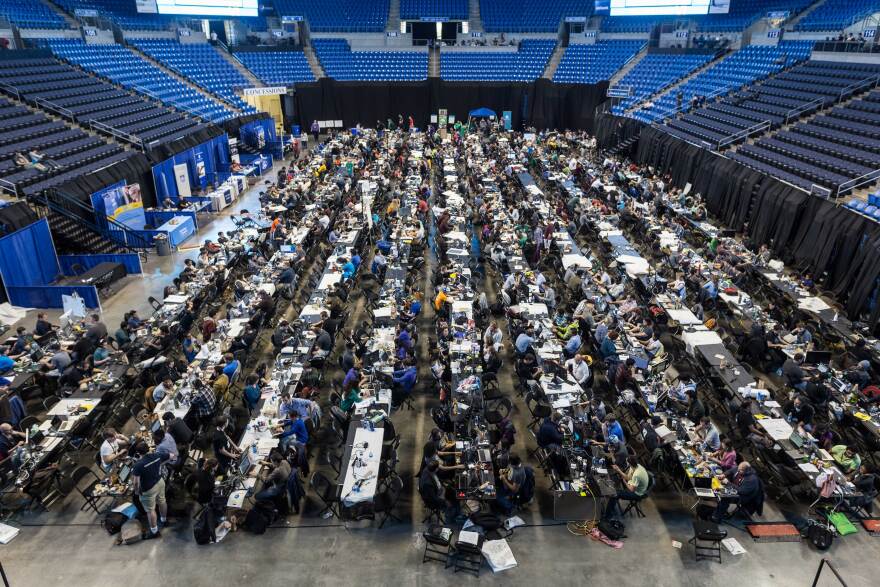Globalhack VII, a 48-hour hack-athon, returns to the Chaifetz Arena on the Saint Louis University campus this weekend with the goal to develop software to aid local agencies that serve immigrant and refugee communities in the region.
Matt Menietti, executive director of Globalhack, calls the event a “civic tech project.” More than 700 hackers are expected to participate in the event with $100,000 in prizes to be awarded to the best software solutions on Sunday.
Globalhack keeps the specific challenges for the competition under wraps until the hack-athon begins. But it takes months of work to refine and define the problem hackers will be asked to solve.
“We rely heavily on agencies to work with us,” Menietti said. “We want to understand their network, the community they serve and what would help them to do that more efficiently.”
Representatives from The Mosaic Project, Casa de Salud, the International Institute of St. Louis and the Immigrant Service Providers Network have worked on this year’s “challenge briefs” with the Globalhack team.
“We’re really excited at the possibilities of addressing the issues surrounding connectivity for immigrants in our community,” said Vin Ko, senior program manager at the St. Louis Mosaic Project.
“These challenge briefs address some of the issues we’re seeing not only from clients’ perspectives, but also from other service providers’ perspectives that serve the growing immigrant and refugee here,” Ko said.
According to the 2017 American Community Survey, published by the U.S. Census, St. Louis is the second fastest-growing metro region for the foreign-born population out of the nation’s largest cities. The St. Louis region’s foreign-born population grew by 4.3% in 2016. The State of Missouri also experienced an increase of 6,441 foreign-born residents in 2016.
Diego Abente, vice president of economic development at the International Institute of St. Louis, said his organization, like others, engages with its immigrant clientele on a personal, one-on-one basis.
“We have not engaged with technology as much as we could have,” Abente said. “Leveraging the experience and power and passion of Globalhack allows us the opportunity to expand our services.”

In 2016, Globalhack VI welcomed participants from 33 states and eight countries. That challenge focused on ways to improve data systems for nonprofits aiding the homeless.
The team that won the 2016 Globalhack developed software that simplified data entry for agencies that are required to keep detailed records on their homeless clients.
Menietti said the winning team “had to return to reality and full time jobs” and Globalhack has contracted with developers to refine the software and explore ways to share the open source product with agencies in and beyond St. Louis.
Follow Melody on Twitter: @melodybird




